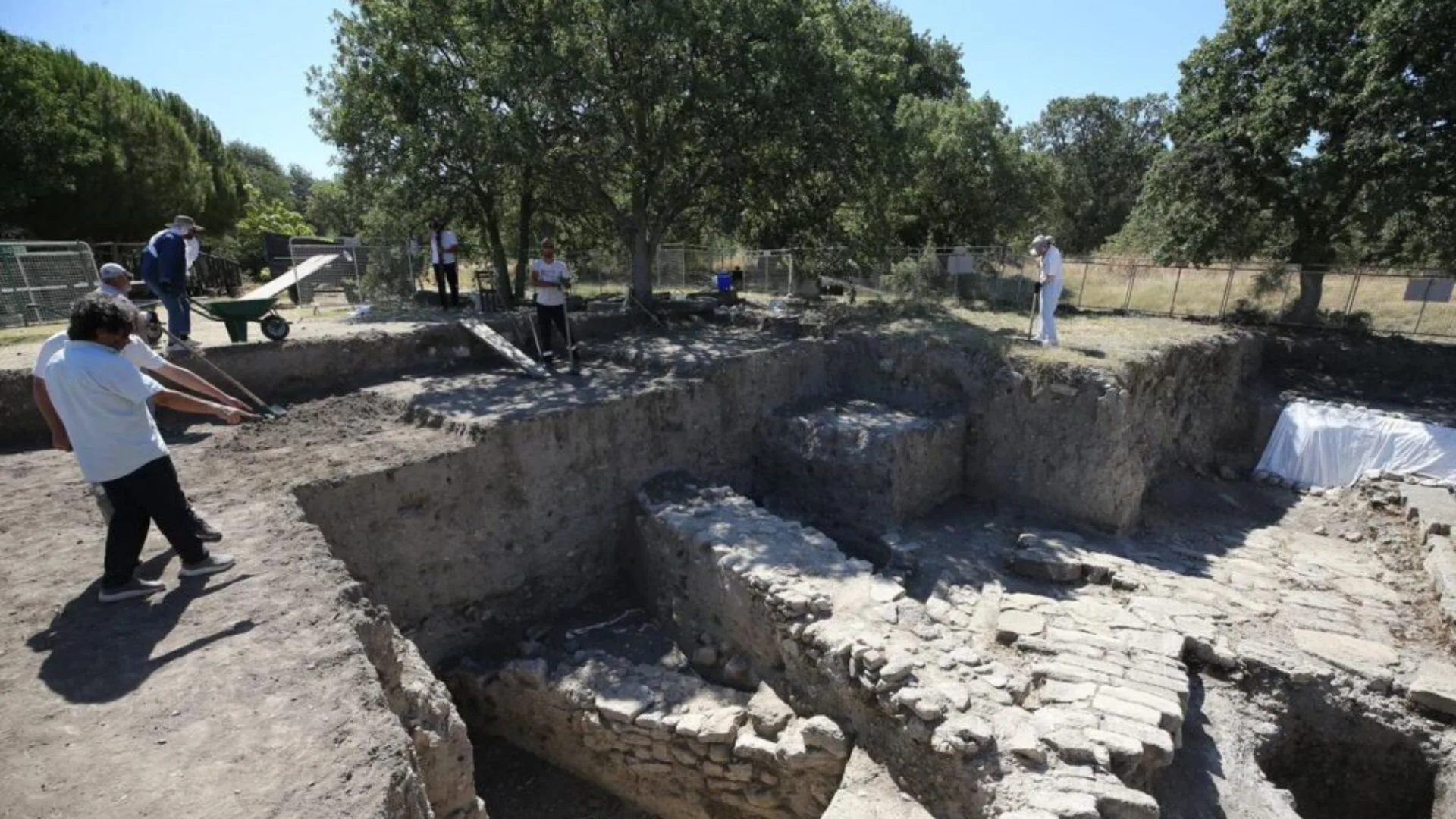THE EDITED PRESS RELEASE: “Learning Greek was inspired not only by Humour frontman Andreas Christodoulidis’s decision to start learning the language, but also the very idea of “returning to oneself by actively doing something, like learning about your history, reconnecting with things that were important when you were younger. In my case, it was the things I shared with my dad: poetry, music and language.”
But the album isn’t necessarily about looking back — it’s about understanding the circularity of heritage and culture. As he delved deeper, Christodoulidis came to see himself as part of this history, not an observer of it. In the same song his lyrics might make reference to the Greek military dictatorship of the late 1960s that his dad grew up in the shadow of, just as it drops in on his grandfather in Athens, an old man surrounded by art in an apartment that was curated “like a museum, almost as if in preparation for dying.”
“The idea of learning Greek stopped being just about learning the language,” he says. “It became about exploring and investing in the things that make one Greek or give one a sense of national identity, especially as someone who’s second generation. It’s not so much about Greece as about my family and that feeling. It’s about feeling disconnected, almost like you’re outside of your own life, which is something I’ve written about a lot. Learning Greek was an attempt to get back into my life and feel like myself again.”

Learning Greek takes these ideas and runs with them until its lungs give out. In responding to Christodoulidis’ searching writing, his bandmates buck and whirl through Humour’s most direct, coruscatingly exciting songs to date. They thrillingly run the patiently anthemic indie-rock of Dirty Bread in parallel to Neighbours’ feral post-hardcore swell and the almost elegiac title track, which finds Christodoulidis and his father reading from On Philhellenes Street, an essay by Andreas Embirikos that recasts being overcome by the heat of Athens as a metaphor for death’s coiled menace and the need to live as though it matters.
Scampering in and out are startlingly fresh melodic swatches and deft rhythmic switch-ups that offer a sense of light and shade behind lyrics that, even at their most surreal, remain unflinching in their dissections of loss, anxiety, guilt and the concept of legacy. “We’ve always tried to combine pushing horrible ideas, whether they’re dissonant or heavy, with really nice bits,” guitarist Jack Lyall observes. “For a while, it kept taking the form of a horrible verse and a nice chorus but we looked into other ways of doing that.”
The fizzing Memorial, snottily anthemic but emotionally gutting, is a perfect example of the high-wire act Humour have pulled off across Learning Greek. It finds Christodoulidis on the beach at Troy, using poet Alice Oswald’s titular reinterpretation of Homer’s Iliad to find a new context through which to understand the way death’s inevitability can sit on our chest. “Oswald describes the Iliad as a catalogue of death,” he reflects. “It’s a step-by-step description of all these people being slaughtered, but it’s described in an incredibly beautiful way.”

Underlining the idea that history is kept alive by connection, in Humour’s own retelling Hector and his wife Andromache wait next to buzzsaw guitars, the knowledge of what’s to come hanging heavy between them like the blow that’ll wipe the Trojan hero from the board. As Smith and bassist Lewis Doig ratchet the pace up and up and up, Christodoulidis reshapes thousands of years of granular history into a sharp point. It’s a joyful transgression — what if the Iliad ripped? — but it’s also a telling reminder that some stories should always be malleable in our mouths.
“I was very aware, like, ‘Am I going to write a song about these two characters from the Iliad? Is that just a bit pretentious?’” Christodoulidis says. “But then I thought it’s so unexpected that it would be paired with this song, which is very upbeat and almost pop-punky. I had a melody in mind. I thought, ‘If ever there’s ever a time to lean into that subject matter, it’s when you’d never suspect a song to be about something like that.’ ”
But amid the gore, Christodoulidis also found another linguistic framework to toy with, helping to encase in amber the dichotomy at the centre of the record. On Neighbours, he follows the Oswald-esque phrasing “I could easily be the first to die” with “face pressed to the mirror like an asshole.” There, next to the most serious thing he can think of, is a cold serving of mortal absurdity. It reflects the way the band’s dynamic, daring structures and cacophonous approach to melody cut back against the record’s ruminative heart at every turn, goading us to celebrate life even while its flame gutters out.”









